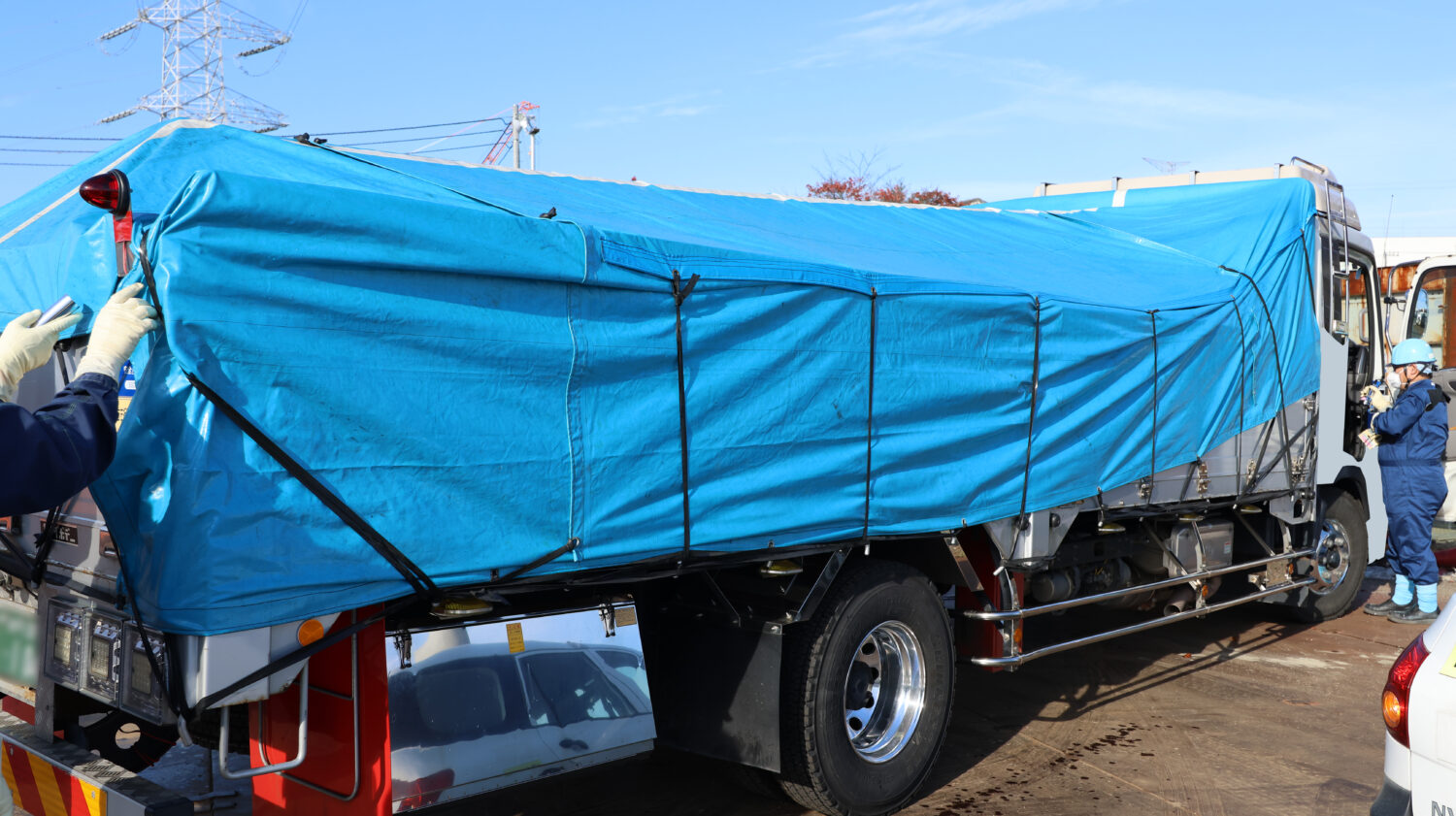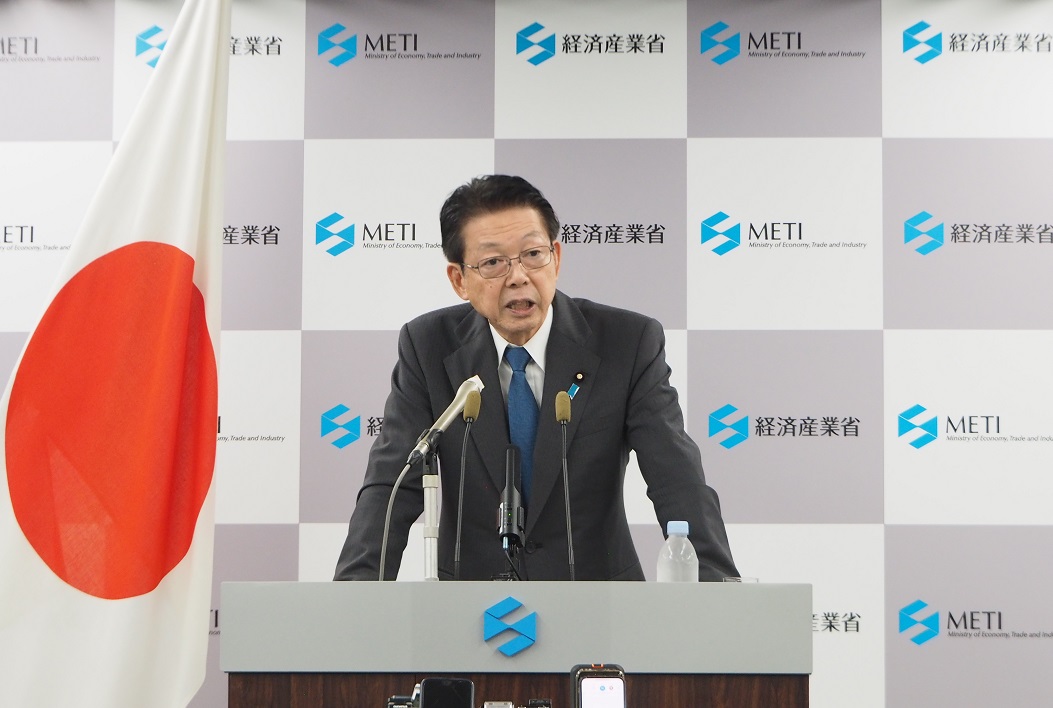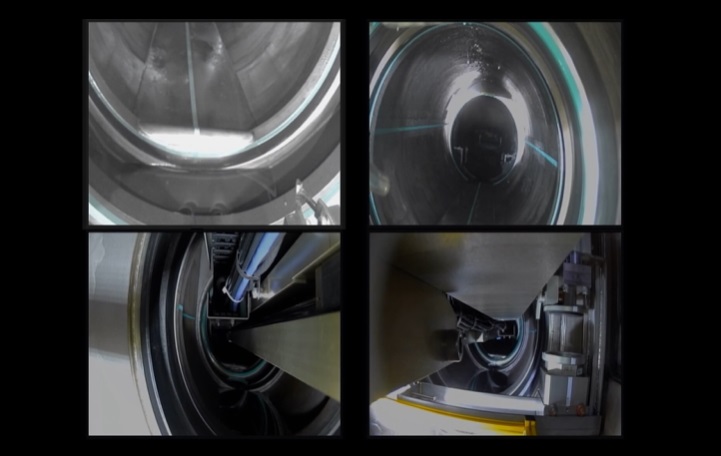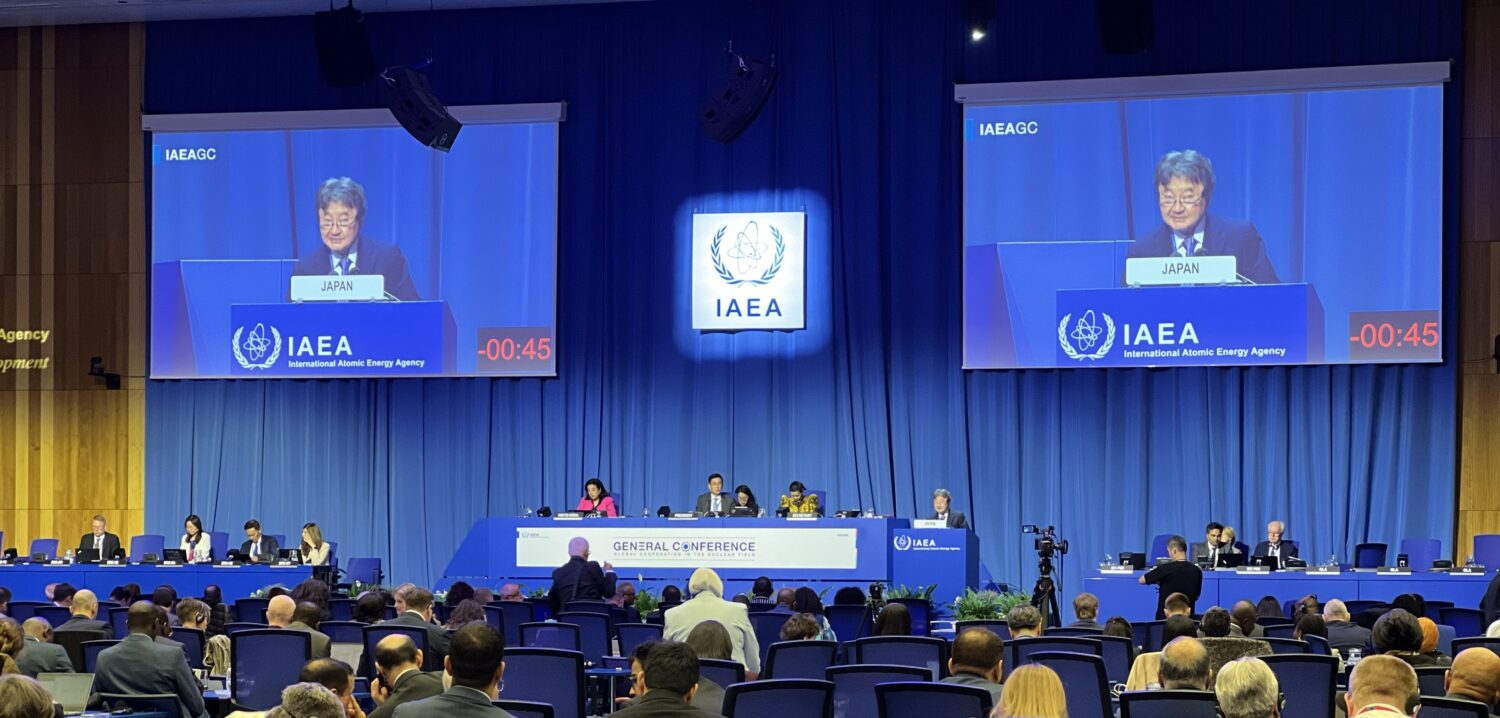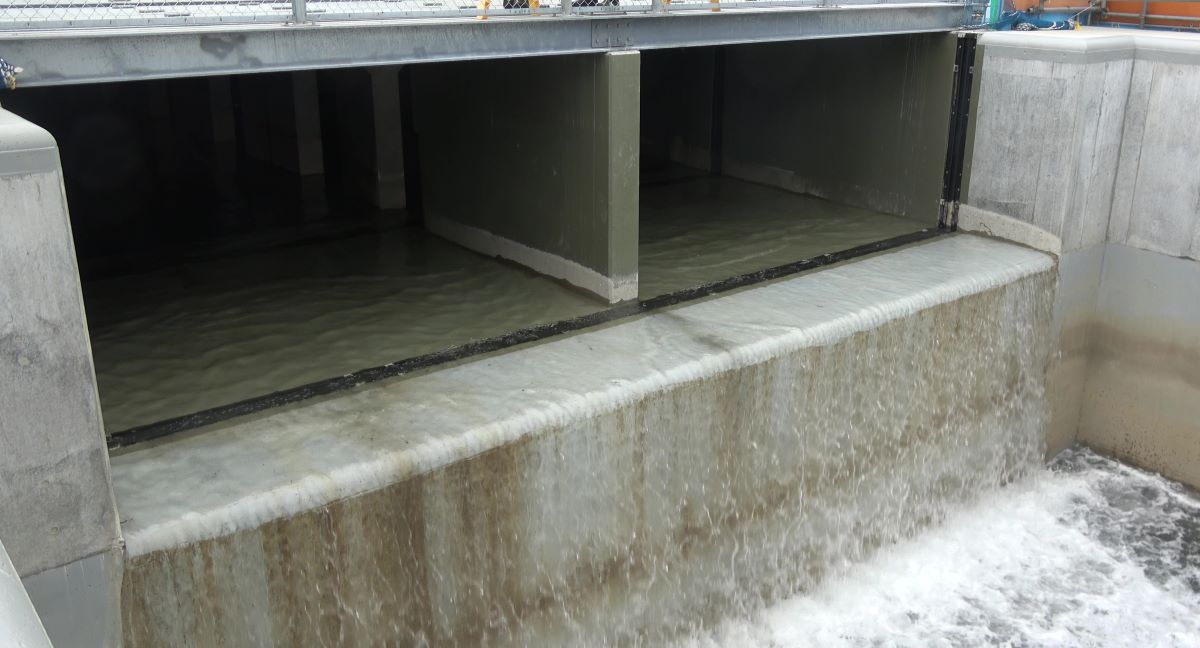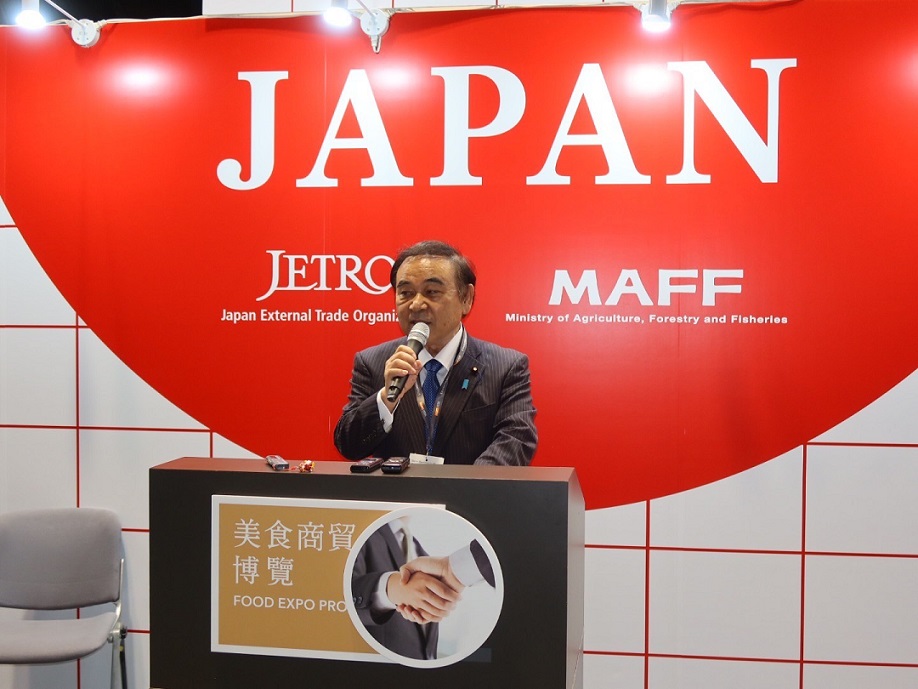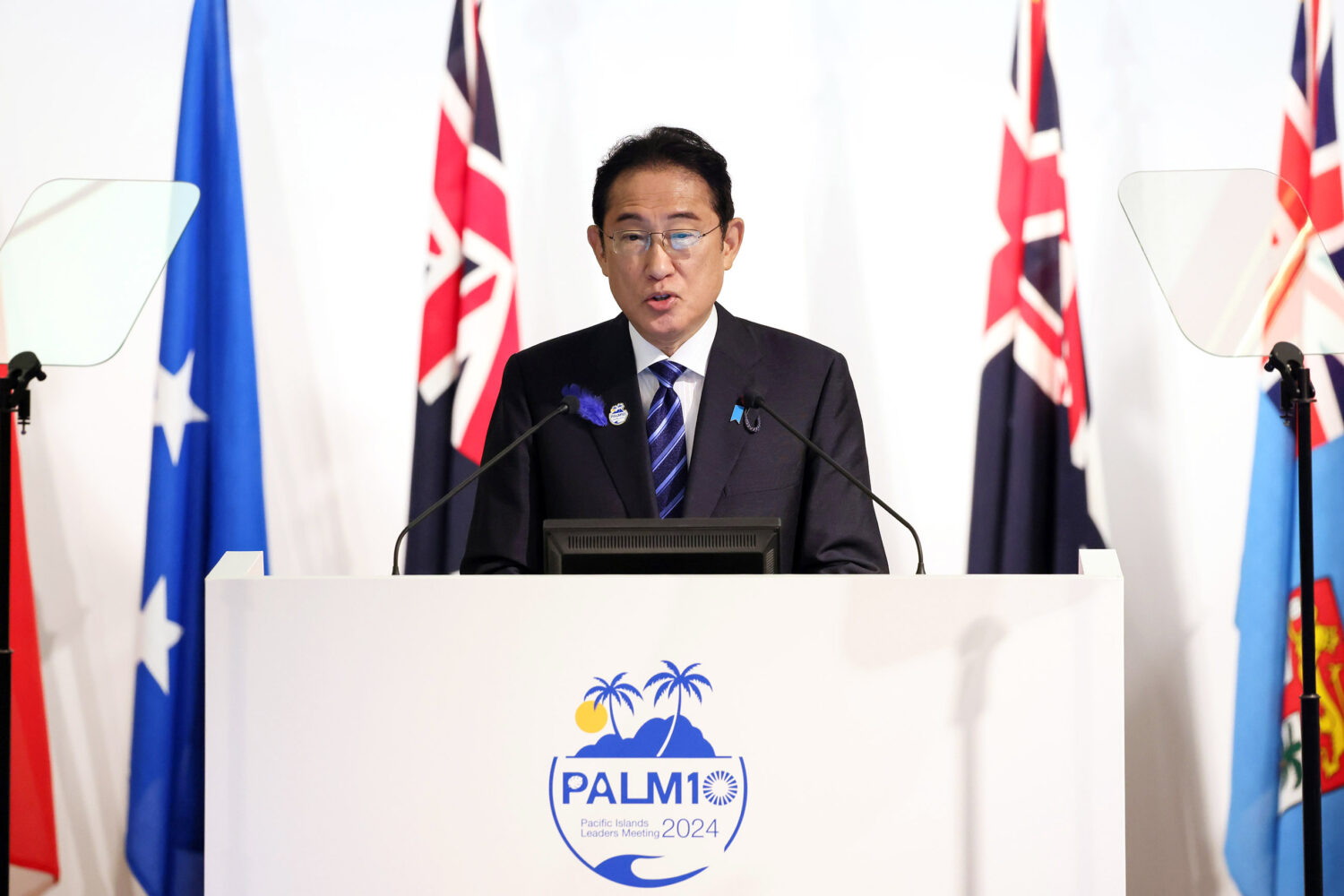Toshitsuna Watanabe
Mayor of Okuma Town
In this fifth and final interview of our series, we talked with Mayor Toshitsuna Watanabe of Okuma Town in Fukushima Prefecture. He spoke frankly about the past five years, during which he took the lead in difficult situations, and on the future he foresees.
JAIF: What are your thoughts, now that five years have passed since the earthquake and nuclear accident occurred?
Mayor Watanabe: Reconstruction seems to be slow. Yet I have gradually come to recognize real progress. The Joban Expressway has fully reopened. Decontamination is proceeding on the JR Joban Line, toward its reopening. In March of this year, Okuma Town issued its second reconstruction plan, for the coming decade. It has also drawn up a comprehensive vision and a general strategy, which sort out and promote projects for regional restoration.
In the second reconstruction plan, the town has positioned the Ogawara district as a reconstruction base. There, the Tokyo Electric Power Co. (TEPCO) has completed the Fukushima Revitalization Meal Service Center for the defunct Fukushima Daiichi Nuclear Power Plants. Some 750 housing units for TEPCO employees are under construction, and they should be ready for occupancy this July. We are preparing for building a hydroponic facility. A mega-solar plant has been in operation since last December. A highway interchange will be constructed on the Joban Expressway to support reconstruction, for which site negotiations are now being carried out.
The situation in Okuma Town is still severe. However, I think it is an important time in the work, so that residents will be able to see that things are in fact moving toward reconstruction, step by step.
JAIF: How difficult is it to maintain a sense of community among residents living elsewhere as evacuees, waiting to return home?
Mayor Watanabe: In April 2011, after the earthquake, we evacuated to Aizuwakamatsu City after considering the capacity for education and medical care. At the beginning, 700 elementary and junior high school students were accepted, and entrance ceremonies were held at a school in the city that had previously been closed. At that time, the mayor of Aizuwakamatsu City said, referring to a historical event: “We are ready to do whatever you need us to.” In the closing days of the Tokugawa shogunate (1868-69), the Aizu domain had lost the Boshin War and was forced to relocate to another place, later being called the Tonami domain. We are grateful to Aizuwakamatsu for welcoming us so warmly. We still enjoy a good relationship.
Now, in addition to Aizuwakamatsu City, evacuees are split among Iwaki City, Koriyama City and elsewhere, due to various considerations, including going to school and working at the Fukushima Daiichi NPPs. For example, about 4,500 of them live in Iwaki now, and about 1,500 in Aizuwakamatsu.
Accordingly, we have established community bases in Aizuwakamatsu, Iwaki and Koriyama to provide various administrative services. Given the prolonged evacuation, Okuma Town, in order to preserve its identity, has launched an original project to maintain community ties. For example, citizens get together in their current administrative units, and we subsidize the costs of their events. The annual limit is JPY100,000 per person. We intend to continue the effort so that citizens may continue to do such things as enjoying viewing cherry blossoms and traditional performing arts together.
JAIF: What about longer-term issues, including decontamination and interim storage facilities for removed soil?
Mayor Watanabe: In the Ogawara district, which was designated as a reconstruction base, decontamination was carried out ahead of other areas, and the siting of facilities and the development of infrastructure are advancing steadily. But an area where 96% of the Okuma population used to live is still designated as a place “where residents will not be able to return home for a long time,” so the town has asked the national government to be responsible for decontamination so that the residents may return as soon as possible. Currently no policy on decontamination of that area has been announced. I have heard that the government will do so by July or thereabouts, and I expect something specific to start moving forward.
As for an interim storage facility, the Ministry of the Environment has begun investigations of some 2,300 landowners, estimating the amounts of money that would have to be paid. Negotiations with thousands of landowners cannot be so easy. Nevertheless, in order to make progress in reconstruction, this point in the development of an interim storage facility must be an important time.
JAIF: Does a future vision require extensive cooperation over a broad area?
Mayor Watanabe: I think that cooperation among the six towns and two villages in Futaba-gun is important. Actually, however, progress in reconstruction varies so much from municipality to municipality, that this is somewhat difficult. Cooperation would be rational and an advantage to the residents. We are now at the stage of talking about starting up medical clinics and transportation over a broad area. In Futaba-gun, people are cooperating in such areas as waste disposal, fire services and water supplies.
Building on that foundation, we will work on the issues one by one. There is also talk of a municipal merger. Personally, given that the situation in each municipality is different, including compensation issues, I think that it is important to focus on finding common ground for cooperation on reconstruction.
JAIF: What do you think would help get reconstruction on track?
Mayor Watanabe: In its second reconstruction plan, Okuma Town aims at creating a town of 3,000 people in the Ogawara district, comprised of some 1,000 residents and 2,000 workers from the Fukushima Daiichi NPPs. Thinking of the number of people currently engaged in NPP-related work, creating a town of that size is not a castle in the sky. I think that the coming few years will be key to establishing a reconstruction base.
I think the true value of the national reconstruction policy will be judged from now on. For the past five years, the successive prime ministers and ministers of reconstruction and the environment have often visited the affected area, directly listening to local municipalities, and actively working on those issues. For example, decontamination of the cemetery was complicated by the jurisdictions of the ministries. The Ministry of the Environment is responsible for decontamination of the site and tombstones, while the Ministry of Construction is responsible for moving and putting the tombstones back in place. Minister of the Environment Nobuteru Ishihara heard directly about that, so he talked with Minister of Reconstruction Takumi Nemoto, and the two ministries worked together “experimentally,” resulting in evacuated residents being able to come back temporarily and visit the graves during the August obon holiday period. Local people in such circumstances rarely offer praise, but at the time we heard quite a few emotional words from the citizens, who said that they were “tearing up” at the opportunity to properly honor their ancestors and express the devotion that they continually feel.
The staff of Okuma Town has worked hard and has come through the most difficult times. Some left, exhausted, but there is fresh “power,” too, like a public health nurse who was sent to support us, and then eventually joined us as a new staff member. When an earthquake occurred recently in Kumamoto Prefecture, our town sent 13 veteran staff members in rotation to assist there.
We have received a lot of other encouragement, too, during the hardships. A pensioner in Osaka, for example, has sent us a portion of his benefit every year with a warm message.
Looking ahead, though, we should not let ourselves become conditioned to receiving such support and help. Ultimately, we must be independent. Some citizens have achieved that, but others, so far, not at all. Prospects for going back home greatly affect their mentality. All citizens have complicated feelings and thoughts. Being “attuned to people’s thoughts” is not something that can be easily claimed. Aspects of the accident are felt quite deeply
Thus far we have been financially and economically supported. Now we must recover our independent minds.




